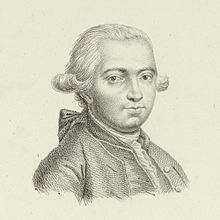
A hymnal or hymnary is a collection of hymns, usually in the form of a book, called a hymnbook. They are used in congregational singing. A hymnal may contain only hymn texts ; written melodies are extra, and more recently harmony parts have also been provided.

"Love Divine, All Loves Excelling" is a Christian hymn by Charles Wesley on Christian perfection. Judging by general repute, it is among Wesley's finest. Judging by its distribution, it is also among his most successful.
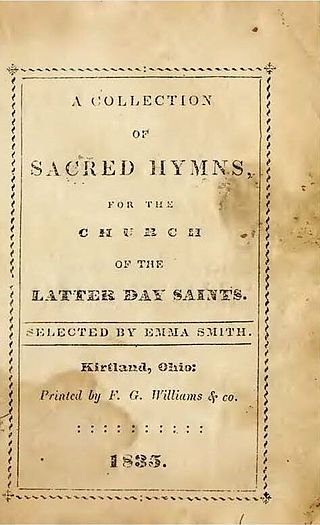
A Collection of Sacred Hymns, for the Church of the Latter Day Saints. was the first hymnal of the Latter Day Saint movement. It was published in 1835 by the Church of the Latter Day Saints.

"Christ the Lord Is Risen Today" is a Christian hymn associated with Easter. Most of the stanzas were written by Charles Wesley, and the hymn appeared under the title "Hymn for Easter Day" in Hymns and Sacred Poems by Charles and John Wesley in 1739. The hymn eventually became well known for the "Alleluia" sung as a melisma after each line, which was added by an unknown author, probably to fit the commonly used hymn tune, "Easter Hymn". It remains a traditional processional hymn on Easter Sunday.
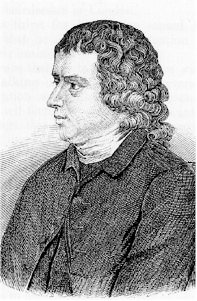
"Come Thou Fount of Every Blessing" is a Christian hymn written by the pastor and hymnodist Robert Robinson, who penned the words in the year 1758 at the age of 22.
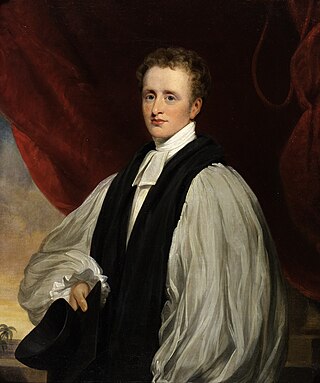
"Holy, Holy, Holy! Lord God Almighty!" is a Christian hymn written by the Anglican bishop Reginald Heber (1783–1826).

Felice de Giardini was an Italian composer and violinist.
Hymnology is the scholarly study of religious song, or the hymn, in its many aspects, with particular focus on choral and congregational song. It may be more or less clearly distinguished from hymnody, the creation and practice of such song. Hymnologists, such as Erik Routley, may study the history and origins of hymns and of traditions of sung worship, the biographies of the women and men who have written hymns that have passed into choral or congregational use, the interrelationships between text and tune, the historical processes, both folk and redactional, that have changed hymn texts and hymn tunes over time, and the sociopolitical, theological and aesthetic arguments concerning various styles of sung worship.
"God of Our Fathers" is a 19th-century American Christian hymn, written in 1876 to commemorate the 100th anniversary of the United States Declaration of Independence.

"Come, Thou Long Expected Jesus" is a 1744 Advent and Christmas carol common in Protestant hymnals. The text was written by Charles Wesley. It is performed to one of several tunes, including "Stuttgart", "Hyfrydol", and "Cross of Jesus". The hymn is considered an enduring classic in Christian hymnody.
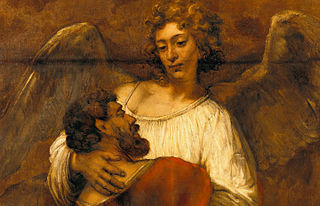
"Wrestling Jacob", also known by its incipit, "Come, O thou traveller unknown", is a poem and hymn on the nature of God which appears in some Protestant hymnals. The text is attributed to Methodist minister Charles Wesley. It focuses on the change that can occur in one's own heart and is based on Genesis 32:24-32, which is the story of Jacob wrestling with an angel sent by God at Peniel.

"All Glory, Laud and Honour" is an English translation by the Anglican clergyman John Mason Neale of the Latin hymn "Gloria, laus et honor", which was written by Theodulf of Orléans in 820. It is a Palm Sunday hymn, based on Matthew 21:1–11 and the occasion of Christ's triumphal entry into Jerusalem.
The King of Love My Shepherd Is is an 1868 hymn with lyrics written by Henry Williams Baker, based on the Welsh version of Psalm 23 and the work of Edmund Prys.
Edward Wilton Eddis was a poet and prophet in the Catholic Apostolic Church at Westminster, London and co-author of the Hymns for the Use of the Churches, the hymnal of the Catholic Apostolic Church.

"Allein Gott in der Höh sei Ehr" is an early Lutheran hymn, with text and melody attributed to Nikolaus Decius. With the reformers intending church service in German, it was intended as a German version of the Gloria part of the Latin mass, used in almost every service. Decius wrote three stanzas, probably in 1523, while a fourth was added, probably by Joachim Slüter.
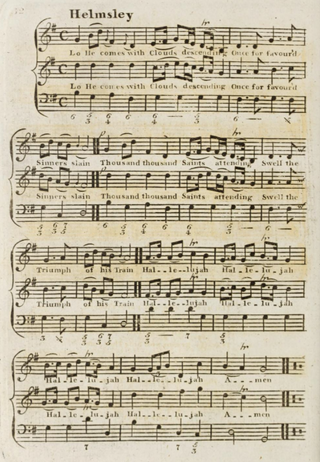
"Lo! He comes with clouds descending" is a Christian hymn by Charles Wesley (1707–1788), based on an earlier hymn, "Lo! He cometh, countless Trumpets" by John Cennick (1718–1755). Most commonly sung at Advent, the hymn derives its theological content from the Book of Revelation relating imagery of the Day of Judgment. Considered one of the "Great Four Anglican Hymns" in the 19th century, it is most commonly sung to the tune Helmsley, first published in 1763.

"Sun of Unclouded Righteousness" is a little-known 1758 Christian hymn written by Charles Wesley, the brother of John Wesley, the founder of Methodism. It was written as an intercessory hymn praying for the salvation of Muslims and calls for their conversion to Christianity. It had fallen out of use by around 1880.

"O Jesu Christe, wahres Licht" is a Lutheran hymn by the German Baroque poet, Lutheran minister and hymn-writer Johann Heermann. The text was first published in 1630 during the Thirty Years' War. It is a prayer for enlightenment of those who are ignorant, and of those who turned away. It was associated with a melody from Nürnberg, dating to 1676. The hymn is part of modern German hymnals, both Protestant and Catholic. It was translated to English as "O Christ, our true and only light".
"A Charge to Keep I Have" is a hymn written by Charles Wesley. It was first published in 1762 in Wesley's Short Hymns on Select Passages of the Holy Scriptures. The words are based on Leviticus 8:35. It is most commonly sung to the hymn tune Boylston by Lowell Mason.
